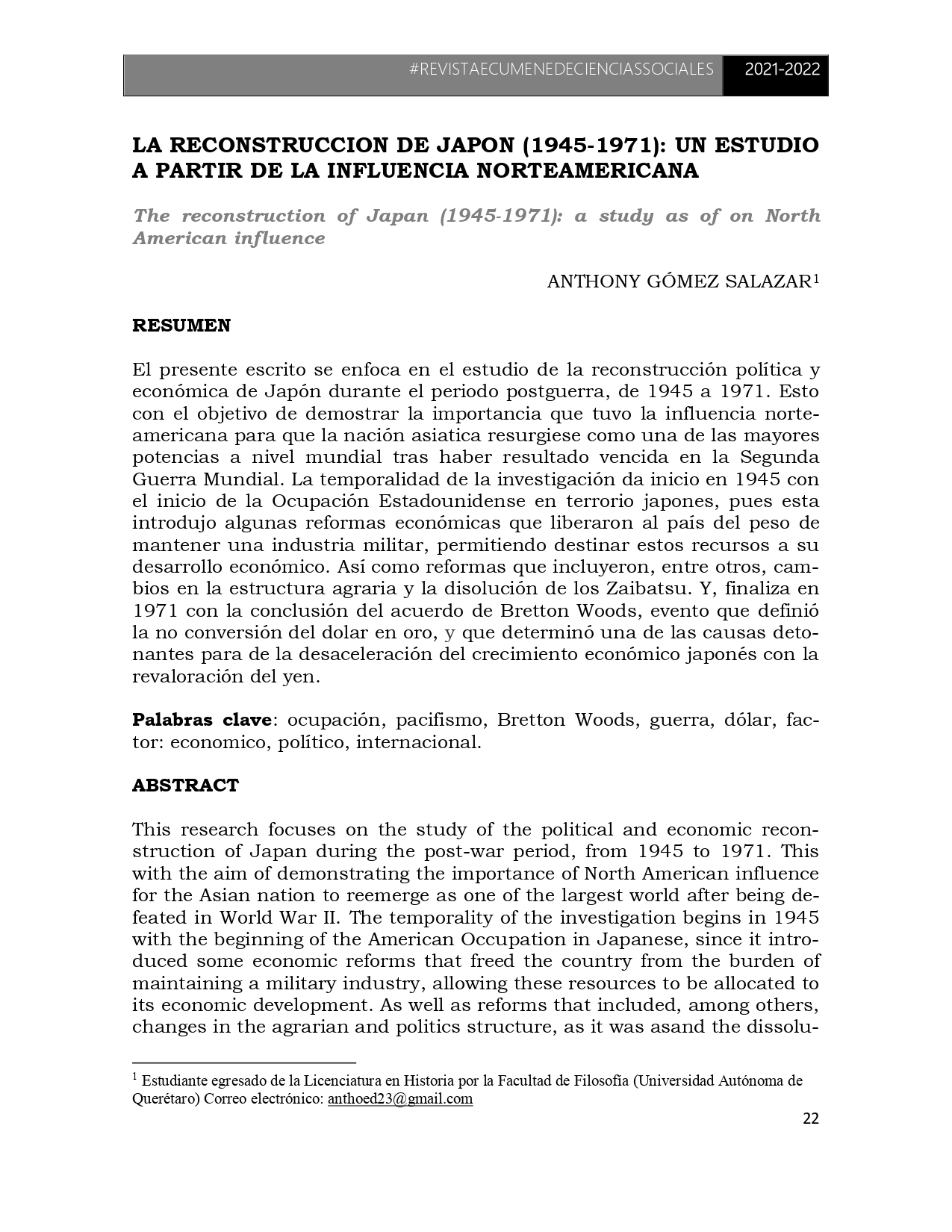Abstract
This research focuses on the study of the political and economic reconstruction of Japan during the post-war period, from 1945 to 1971. This with the aim of demonstrating the importance of North American influence for the Asian nation to reemerge as one of the largest world after being defeated in World War II. The temporality of the investigation begins in 1945 with the beginning of the American Occupation in Japanese, since it intro-duced some economic reforms that freed the country from the burden of maintaining a military industry, allowing these resources to be allocated to its economic development. As well as reforms that included, among others, changes in the agrarian and politics structure, as it was asand the dissolution of the Zaibatsu. And, it ends in 1971 with the conclusion of the Bretton Woods agreement, an event that defined the non-conversion of the dollar into gold, and which determined one of the triggers for the slowdown in Japanese economic growth with the revaluation of the yen.

This work is licensed under a Creative Commons Attribution-NonCommercial-ShareAlike 4.0 International License.
Copyright (c) 2022 Revista Ecúmene de Ciencias Sociales

